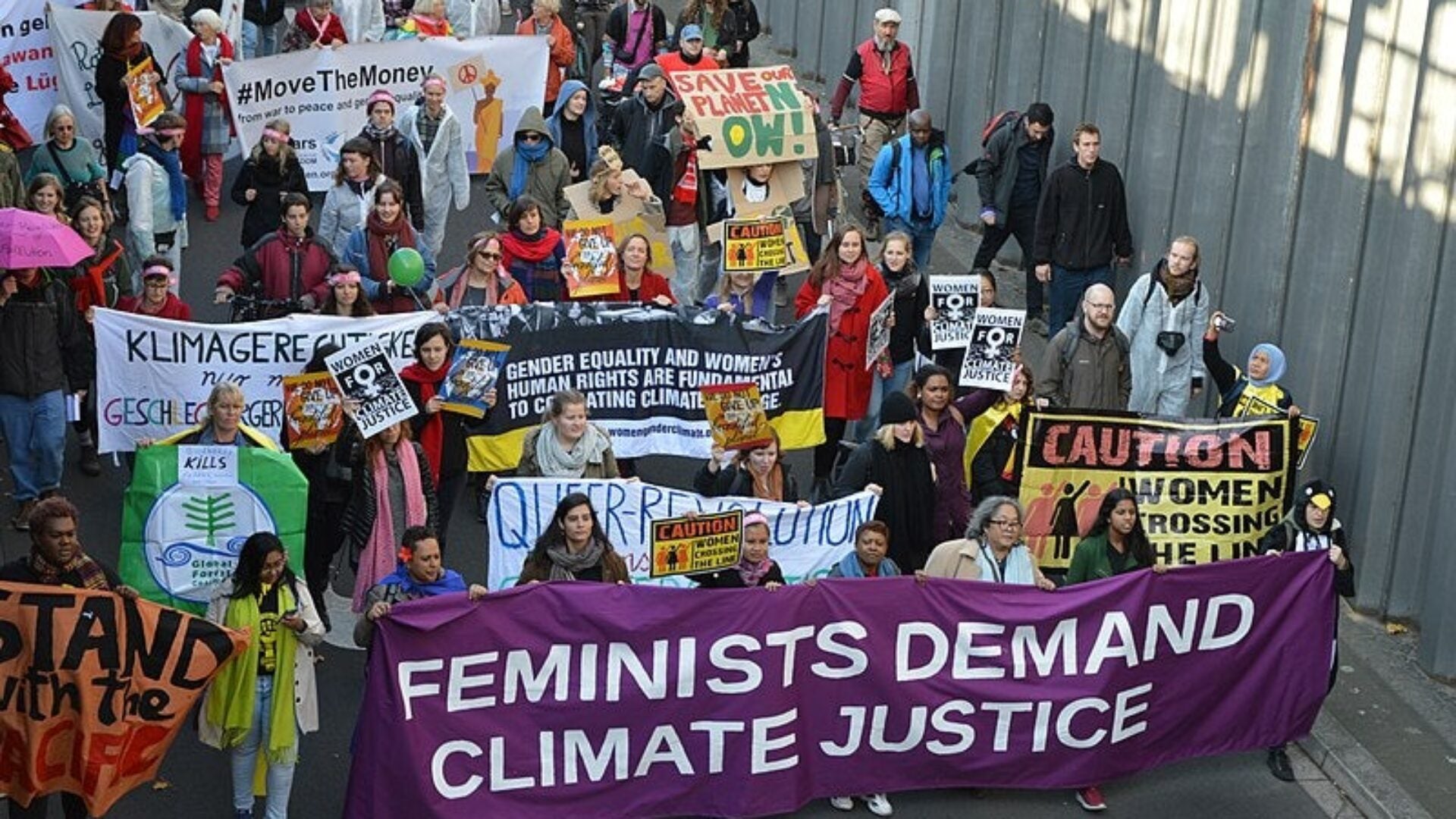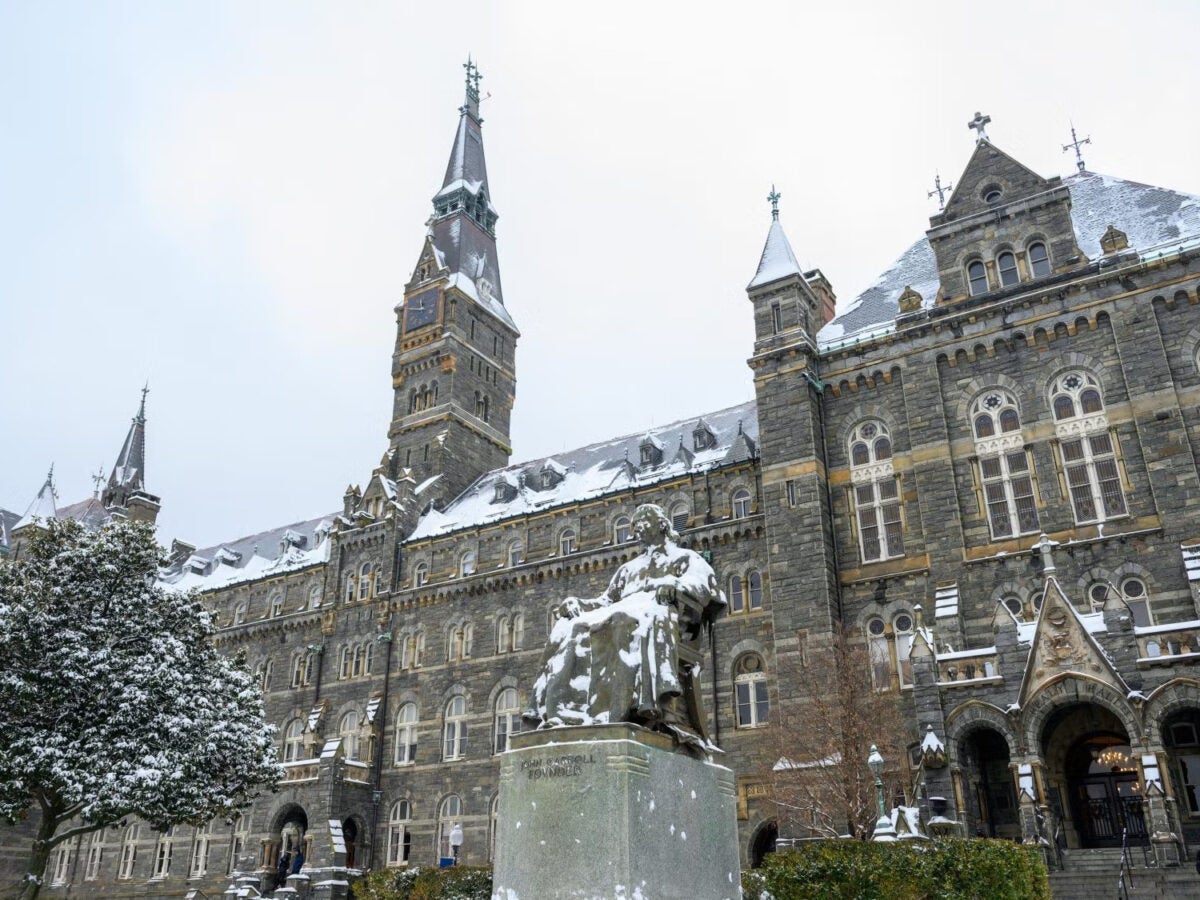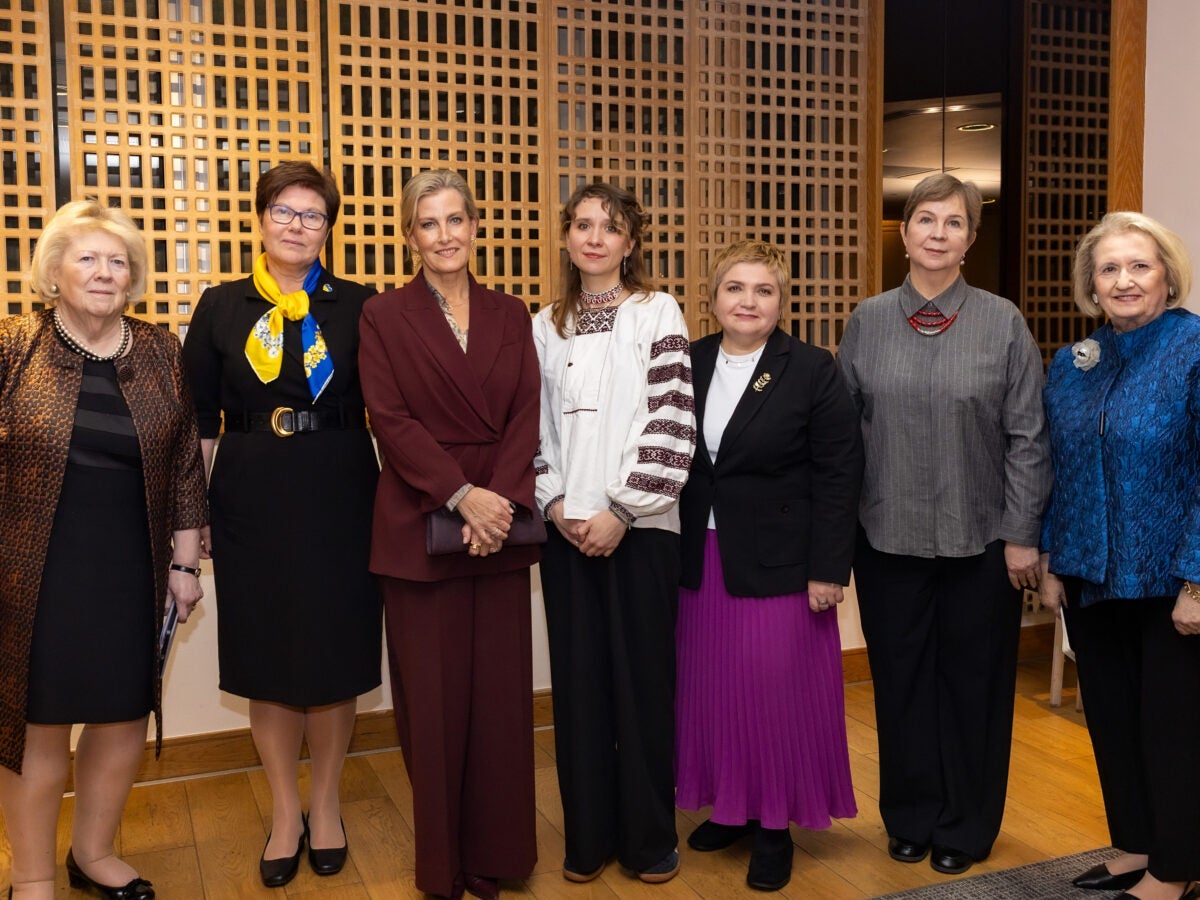We Can. We Will: Women, Peace and Security, Climate Week NYC, and the Run Up to COP28

With the motivational theme “We Can. We Will,” Climate Week NYC 2023 (September 19-24) was the most recent of a series of high-level events promoting transformative action on issues of gender, climate, peace and security. Following up on last November’s UN Conference of the Parties (COP27) and leading to the upcoming COP28, several climate-related events held this year featured a broad focus on climate justice, including attention to gender justice. Across these discussions we are seeing a variety of stakeholders move beyond superficial acknowledgments of the disproportionate impacts of climate change on women and girls toward an additional focus on the vital need to meaningfully incorporate women’s voices and active participation in climate action and negotiations. These aims are strongly aligned with the core tenets of the WPS Agenda. As noted in a previous post, an effective and inclusive response to the security threat posed by climate change should leverage frameworks such as the Women, Peace and Security (WPS) Agenda. Integrating climate and WPS agendas has the potential to accelerate progress on both fronts.
Recent High-level Events on Climate, Women, Peace and Security
Over the past year, worsening environmental conditions at the planetary level have ramped up pressure on world leaders to tackle what President Biden has called the “only existential threat humanity faces.” Similarly, record-shattering heat fueled by human-induced climate change and a cascade of increasingly frequent and severe disasters prompted UN Secretary-General António Guterres to caution that “humanity has opened the gates of hell.” In his New Agenda for Peace, presented to Member States on July 20th of this year, Guterres outlined his vision for multilateral efforts for peace and security in a context of interconnected global challenges and opportunities. The New Agenda devotes an entire section to the “climate emergency,” while references to women and gender dynamics are interwoven throughout the document. Grounded in international law, the Secretary General’s vision also represents an opportunity to advance the WPS Agenda (and gender equality more broadly) in the face of global backlash against women’s rights. As an input for the Summit of the Future (to be held in 2024), the New Agenda for Peace serves as a stark warning that the damage to our planet now will have significant implications for humanity’s future well-being, safety, and stability
Efforts to overcome these interrelated threats were also discussed during this year’s Climate Week NYC. First celebrated in 2009, this gathering is the largest annual climate event of its kind, bringing together over 400 events and activities across the City of New York. Climate Week NYC 2023 was organized into a series of broad themes: (1) Built Environment; (2) Energy; (3) Environmental Justice; (4) Finance; (5) Nature; (6) Policy; (7) Sustainable Living; (8) Transport; (9) Food; (10) Industry; and (11) Resilience. Each year it is held in partnership with the UN General Assembly and brings together international leaders from the private sector, government, and civil society to showcase and catalyze global climate action. While there was a notable lack of attention to the intersection of gender and climate change across the week’s programming, there were a handful of high-profile women, women’s organizations, and feminist networks who held events promoting the role of women in climate action and the imperative of gender-just climate solutions.
A related event, the Climate Ambition Summit, was held in parallel on September 20th at UN Headquarters, with proposals organized along three distinct but interrelated acceleration tracks – ambition, credibility, and implementation. This summit represented a critical political milestone to accelerate the pace and scale of a just transition to a more equitable, renewable energy-based, climate-resilient global economy. The summit was preceded by several days of mass public protests, during which women and men of all walks of life took to the streets around the world in marches and actions as part of the first mobilization of the Global Fight to End Fossil Fuels.
Women’s Voices in Climate Action and Peace and Security Negotiations
In his remarks at COP27’s opening plenary last year, Simon Stiell, Executive Secretary of the UN Framework Convention on Climate Change (UNFCCC), underscored that women and girls must be placed at the center of climate decision-making and actions towards achieving better outcomes. Promoting women’s leadership in all aspects of climate action is not only the right thing to do, it’s also the smart thing to do: evidence suggests that higher women’s representation in high-level governance structures tends to lead to the adoption of more effective climate change and security policies – a basic tenant of the WPS Agenda.
Women have played a critical leadership role in one of COP’s most contentious and challenging issues: climate reparations – the third pillar of international climate change governance, usually referred to as “loss and damage.” The establishment of a Loss and Damage Fund, touted as the highlight of COP27, was the culmination of decades of pressure from climate-vulnerable developing countries and small island states facing existential threats. However, despite these wins, women remain severely under-represented in COP leadership and negotiation roles: of the 110 world leaders who attended COP27, only 7 were women. And commitments from UNFCCC Parties to include women in climate negotiations consistently fall short: in 2023, women represented fewer than 34% of country team negotiators. The United Arab Emirates, which holds the COP presidency this year, has pledged “to make COP28 the most inclusive UN Climate Change Conference to date.” However, sustained pressure on Parties to promote the role of women in their delegations will be critical in the run-up to this year’s conference.
A main highlight of this year’s annual week of debates at the UN General Assembly UNGA 78 (September 18-26) was the Sustainable Development Goals Summit. Women’s leadership is necessary to deliver the Sustainable Development Goals (SDGs) – all 17 of them, not just SDG 5 on achieving gender equality. Furthermore, while all 17 goals are interconnected to some degree, SDG 5 provides a foundation for the fulfillment of the others and should, therefore, be seen as an essential condition for achieving any long-term political, environmental, social, or economic goal. Renewed and intensified efforts are needed since, as the Global Sustainable Development Report 2023 warns, only 15% of SDG targets are on track to be reached this decade. UN Women and UN DESA’s 2023 Gender Snapshot Report further revealed that current trends would leave more than 340 million women and girls – an estimated 8% of the world’s female population – in extreme poverty by 2030. With regard to addressing the climate crisis, commitment to SDG 5 (gender equality) would facilitate the fulfillment of SDG 13 (climate change) by providing a global action tool to address the gender-specific vulnerabilities linked to environmental change through more equitable and inclusive practices. Similarly, realizing SDG 16 (peaceful, just, and inclusive societies) will require gender-responsive reform of justice and security institutions, the introduction and implementation of laws against violence against women, and the provision of public services that fully meet women’s needs.
Another relevant event taking place during Climate Week 2023 was a panel of highly distinguished speakers titled Innovations in Implementing the Women, Peace, and Security Agenda, convened by the International Peace Institute (IPI), the Sasakawa Peace Foundation, and the Permanent Mission of Ireland to the UN on September 20th. At the event, Japan’s newly appointed Foreign Minister Yoko Kamikawa emphasized the importance of “increasing women’s leadership role in natural and man-made disaster prevention and mitigation efforts and decision-making” as an integral component of the WPS agenda in her closing remarks.
For the past six years, IPI has organized a Symposium dedicated to different WPS-related topics during the UNGA meetings. The IPI WPS Symposium built on the work of the Governments of Ireland, Mexico, and Kenya that initiated The Presidency Trio for Women, Peace and Security during their time as elected members of the UN Security Council (UNSC) in 2021. These three countries’ efforts have evolved into a number of Shared Commitments on WPS organized around three areas: (a) facilitating women’s participation in UNSC meetings; (b) including gender perspectives in UNSC meetings and outputs; and (c) promoting transparency in advancing the WPS Agenda in the Council. Since the start of the original Presidency Trio, 16 past and present UN Security Council members have joined the Shared Commitments, which would be further strengthened through greater attention to climate security within the WPS Agenda. Thus far, however, the UNSC has been reluctant to integrate climate change into its mandate, despite widespread recognition that it acts as a “threat multiplier” that jeopardizes peace and security globally.
The Way Forward
Understanding the environmental, political, and socio-economic impacts of climate change requires more deliberate consideration of global interdependencies between natural and anthropogenic systems, as well as between and among individuals, households, and communities. A system-wide approach to solving the climate crisis is required to address the underlying causes of this situation – i.e., fossil fuel-based economies, resource waste and overconsumption, and the destruction of nature – and prevent further social and ecological threats to planetary stability. At this unique juncture in human history, addressing the growing spread of global polarization within and across countries will be crucial for ramping up global momentum on the SDGs and interrelated challenges of gender inequality and climate change.
As the international community that gathered for the Climate Week NYC and other sideline events prepares for COP28, gender-transformative climate actions must take center stage on the agenda. Additionally, countries can use the ongoing Global Stocktake – to be finalized at COP28 – to identify ways to enhance gender equality by, for instance, assessing gender-differentiated impacts of climate change, highlighting the role of women and marginalized groups in climate action, and ensuring gender-responsive means of implementation. Effective action to address these serious risks, fill critical knowledge, facilitate cooperation, and catalyze further investment in the gender-climate-security nexus is urgently needed.
These measures must also respond to the increasing recognition that the meaningful participation of women in climate action and the protection of nature are essential to the well-being of our planet. Women’s ability to fulfill this critical role requires that their agency and safety be safeguarded. Otherwise, global efforts to mitigate the adverse consequences of climate change and achieve peace, security, and the SDGs will be fundamentally hampered. By supporting women’s leadership, promoting socially just and gender-transformative measures, and including women from climate-vulnerable communities in the discussion, we can and we will more effectively lead the way to a more sustainable, peaceful, and secure future for all.
Marisa O. Ensor | PhD, LLM, GIWPS Senior Climate Fellow
Explore More

End of Year Reflections
This year has been particularly challenging for peace around the world, with…

“No Amnesty, No Silence:” Ukrainian Women Urge Accountability for War-Time Sexual Violence
Last week, the Georgetown Institute for Women, Peace and Security (GIWPS) brought…
